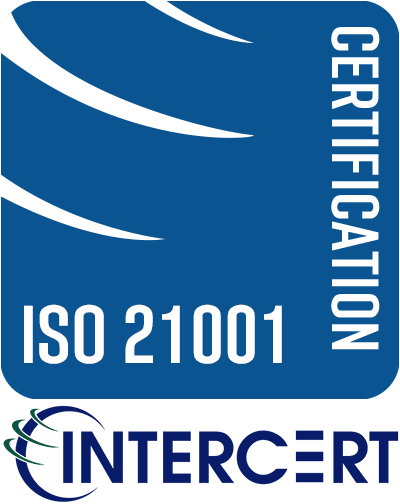The quality management system defines rules and general criteria for production and/or service organizations. Organizations that work in accordance with ISO standards organize the creation of new business opportunities, increase the confidence of customers considering that they are included in the category of safe suppliers of products and services, increase competitiveness, reduce costs, create savings and help maintain and improve their position in the market.
ACADEMY MODULS
![]()
ISO 9001
For organisations
ISO 9001:2015 specifies requirements for a quality management system when an organization:
a) needs to demonstrate its ability to consistently provide products and services that meet customer and applicable statutory and regulatory requirements, and
b) aims to enhance customer satisfaction through the effective application of the system, including processes for improvement of the system and the assurance of conformity to customer and applicable statutory and regulatory requirements.

ISO 15189
For medical laboratories
ISO 15189:2012 can be used by medical laboratories in developing their quality management systems and assessing their own competence. It can also be used for confirming or recognizing the competence of medical laboratories by laboratory customers, regulating authorities and accreditation bodies.

ISO 17020
For inspection bodies
It contains requirements regarding the competence of the bodies performing the inspection and regarding the impartiality and consistency of their inspection activities.
It applies to inspection bodies of type A, B or C, as defined in ISO/IEC 17020:2012, and it applies to any stage of inspection.

ISO 17025
For testing and calibration laboratories
ISO/IEC 17025 enables laboratories to demonstrate that they operate competently and generate valid results, thereby promoting confidence in their work both nationally and around the world.
It also helps facilitate cooperation between laboratories and other bodies by generating wider acceptance of results between countries. Test reports and certificates can be accepted from one country to another without the need for further testing, which, in turn, improves international trade.
AIM OF THE SEMINAR
To train participants with the requirements of the specified standard in order to be trained to create their own quality management system documentation, and to successfully implement accreditation and assessment procedures.
To remove certain doubts, provide the necessary information about changes compared to the old edition of the standard, show solutions from laboratory and assessment practice, as well as enable a free exchange . experiences.
THIS SEMINAR IS FOR
01
02
03
04
05
06
07
08





